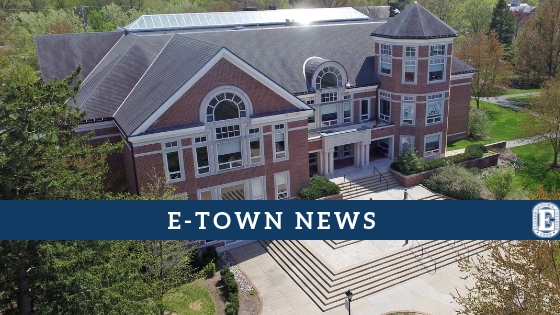By Atikah Ahmat
Lancaster County is mostly occupied by the plain communities that consist of the Amish and Mennonites. You probably drove past one driving a horse buggy. They are known for their lack of electricity, but you might not know about their views on mental health. One could assume that they struggle with discussing mental health openly, but in fact, it is the complete opposite.
Charles Jantzi, professor of psychology at Messiah College, has been exploring mental health treatments within the plain communities. Jantzi worked as a clinical psychologist conducting therapy for 13 years before shifting to teaching full-time and providing therapy part-time.
Jantzi will be presenting a lecture on “Mental Health Treatment in the Plain Communities” as part of his research at Elizabethtown College. He spent a semester at E-town as a Snowden Fellow looking at how plain community members address mental health issues and treatments. Two summers ago, Jantzi provided therapy at Green Pasture, a treatment center for members of the plain communities at Wellspan Philhaven.
“It was easier to conduct the research than I expected. It helped a lot after I knew a few people from the plain communities and could talk about my relationship with them when I began talking to a new person,” said Jantzi.
There are places for women who are struggling with mental health issues. Instead of a professional, ministers usually help treat members. If medication is required, a member will take them to a local physician or nurse practitioner. There have been many cases of mental illnesses such as schizophrenia, bipolar disorder, and major depression that requires medication to treat.
“The acceptance of mental illness has much less stigma now than it would have been 20 years ago,” said Jantzi. The plain communities are more open to treating mental health issues with therapy and medication.
“There’s something called People Helpers, which is a movement of mostly non-professionals who educate people on mental health issues,” said Jantzi. “They have meetings every year. Those groups have really worked to diminish the stigma of mental health in these communities.”
Hannah Burleigh, senior occupational therapy major and psychology minor, says “I believe that mental health education is extremely important as well for everyone.” Burleigh hopes to work with the geriatric population or in oncology after E-town.
Jantzi explains there are available retreats for teenagers, men, and women within the plain communities, but not for children. His lecture will address how the treatment is divided between men and women. Jantzi also emphasizes the role of men in treating women for mental health issues.
“There need to be more treatments available. Many mental health facilities have shut down, causing an influx of homelessness as well,” said Burleigh.
According to Jantzi, members of the plain community who provide treatment for other community members to have an 8th-grade education. They prefer the term “mentors” over “counselors” to avoid legal terms. Jantzi spoke to a few plain community members who have learned a lot from their jobs as mentors.
“I talked to one center who was relatively new. They were desperately searching for information about ways to treat people and how to connect with people,” said Jantzi. “One of the things that impressed me the most were the mentors’ ability to connect and do good mental health work with the little education they have.”
Jantzi is interested in exploring the individual versus community aspect within the plain communities in regard to treating mental health issues for future projects.
“I think it would be helpful to know more about this population, so it would definitely be something I would look into. A good idea would be to have an OT come to speak to us about specifically working with this population,” said Burleigh.
The lecture will be held at the Young Center in E-town on Thursday, April 25 at 7:30 p.m. This event is free and open to the public. For more information, contact the Young Center at (717) 361-1470 or by email at youngctr@etown.edu.
This article was written by student Atikah Ahmat, English Professional Writing Major and Biology Minor.

